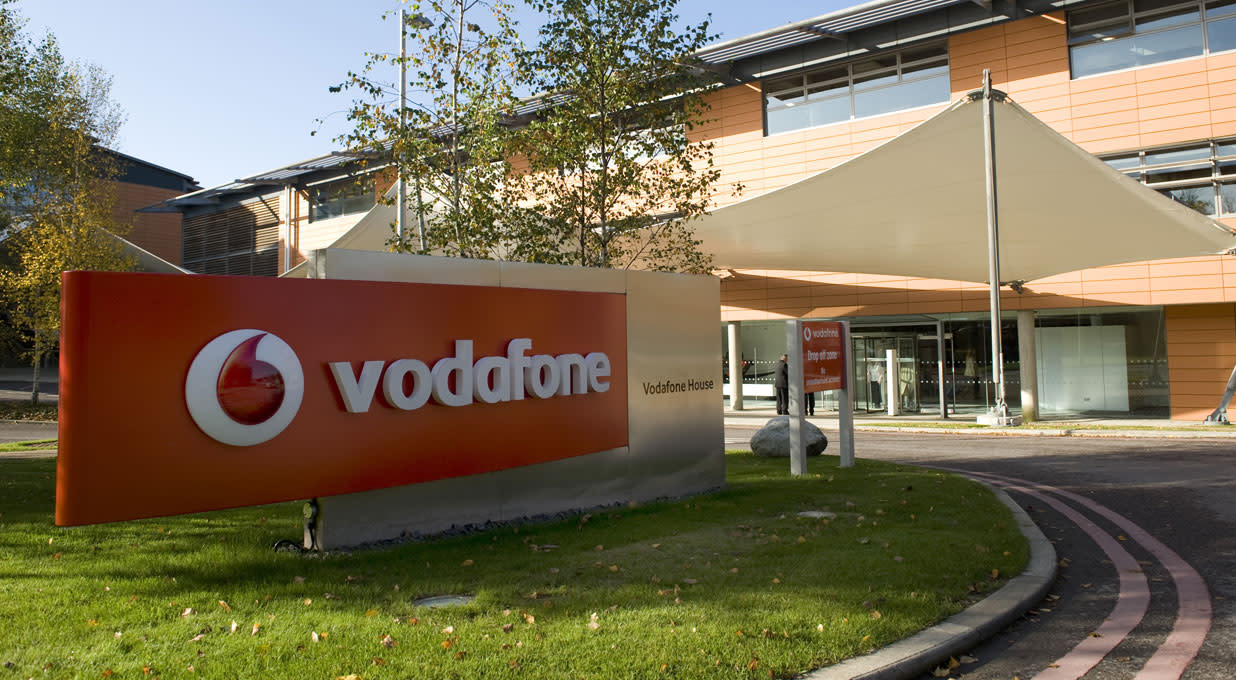Vodafone reported third quarter revenue growth of 5.0% to €9.8bn. Service revenue of €7.9bn was up 5.2% on an organic basis, with a continued slowdown in Germany offset by growth in Other Europe, Africa & Turkey. Underlying cash profit (EBITDAaL) rose 2.2% to €2.8bn.
Vodafone's UK merger with Three was approved in December 2024, with completion expected soon. The €8bn sale of Vodafone Italy to Swisscom closed on 31 December, reducing net debt. Up to €2bn in share buybacks is planned after the current programme.
There were no changes to full-year guidance of around €11bn in underlying cash profit and at least €2.4bn of underlying free cash flow. However, German profits are now expected to be lower in the second half (previously flat).
The shares fell 5.7% in early trading.
Our view
On the face of it, third quarter results were better than expected. But under the hood, the key German market is getting worse and much of the growth in the quarter was down to inflated numbers from Turkey.
Sales in the telecom sector should be relatively robust, as broadband and mobile services are hardly optional. Yet, over the last decade, telecom giants have had to pump huge sums of cash into building out fibre networks and snapping up parts of the 5G spectrum. The main challenge has been the low sales growth relative to spending when you look at telecoms compared to other sectors.
In response to several years of underperformance, Vodafone has an evolved strategy. There are job cuts, the proposed merger of its UK business with Three UK, and sales of the underperforming Spanish and Italian divisions.
We welcome the change, but there's a lot to do.
The key market of Germany is a perfect example of the challenges at hand. After more than €20bn of investment, growing service revenue and customer numbers is proving a challenge. Vodafone was slow to adapt to changing regulations, and when it did, it introduced a poor customer experience.
Regulatory changes mean it lost a big chunk of customers, and price hikes last year have made comparable periods tough. Management’s been calling for performance to pick up but is struggling to deliver the goods and investors are rightly questioning when, or even if, the turnaround will come.
Outside Europe, the Vodacom subsidiary has some exciting growth opportunities in Africa and is targeting mid-to-high single-digit cash profit growth over the next few years. Africa could become increasingly important as the region develops, and Vodafone's leading position in several markets means it's well-positioned to benefit.
With around €12bn coming in from the planned sales, €4bn is pencilled for buybacks (€1.5bn has already been completed). There was an €8bn cash inflow from the Italy sale in the quarter, with a decent chunk going on reducing debt as expected. The dividend has been cut to reflect a smaller business, but still represents an attractive forward yield based on current prices. Rebasing was a good move in our eyes, but as always nothing is guaranteed.
All-in-all then, while we think the portfolio changes and new strategy make sense, the fundamental challenges that go with being a telecom remain. And with growth hard to come by, we'll need to see sustained positive progress in Germany before getting too excited.
Environmental, social and governance (ESG) risks
The telecom industry is low/medium in terms of ESG risk. Data privacy and security is the most significant risk driver, not only because customers are increasingly concerned about privacy, but also because cybersecurity breaches can be costly. Product quality is another key risk, particularly given the networks they manage are considered critical infrastructure. Carbon emissions, human capital and business ethics are also risks worth monitoring.
According to Sustainalytics, Vodafone’s management of material ESG issues is strong
Vodafone has a board-level ESG committee to oversee its ESG program and track key targets. Executive pay is partly based on ESG performance, with a 10% weight in long-term incentives. The company is certified for information security management, meeting industry best practices. Vodafone also has a third-party ethics hotline for anonymous reports and a specialist team for negotiations. However, the company has faced regulatory scrutiny and fines for quality and safety issues, indicating possible gaps in product governance.
Vodafone key facts
All ratios are sourced from LSEG Datastream, based on previous day’s closing values. Please remember yields are variable and not a reliable indicator of future income. Keep in mind key figures shouldn’t be looked at on their own – it’s important to understand the big picture.
This article is not advice or a recommendation to buy, sell or hold any investment.No view is given on the present or future value or price of any investment, and investors should form their own view on any proposed investment.This article has not been prepared in accordance with legal requirements designed to promote the independence of investment research and is considered a marketing communication.Non - independent research is not subject to FCA rules prohibiting dealing ahead of research, however HL has put controls in place(including dealing restrictions, physical and information barriers) to manage potential conflicts of interest presented by such dealing.Please see our full non - independent research disclosure for more information.


